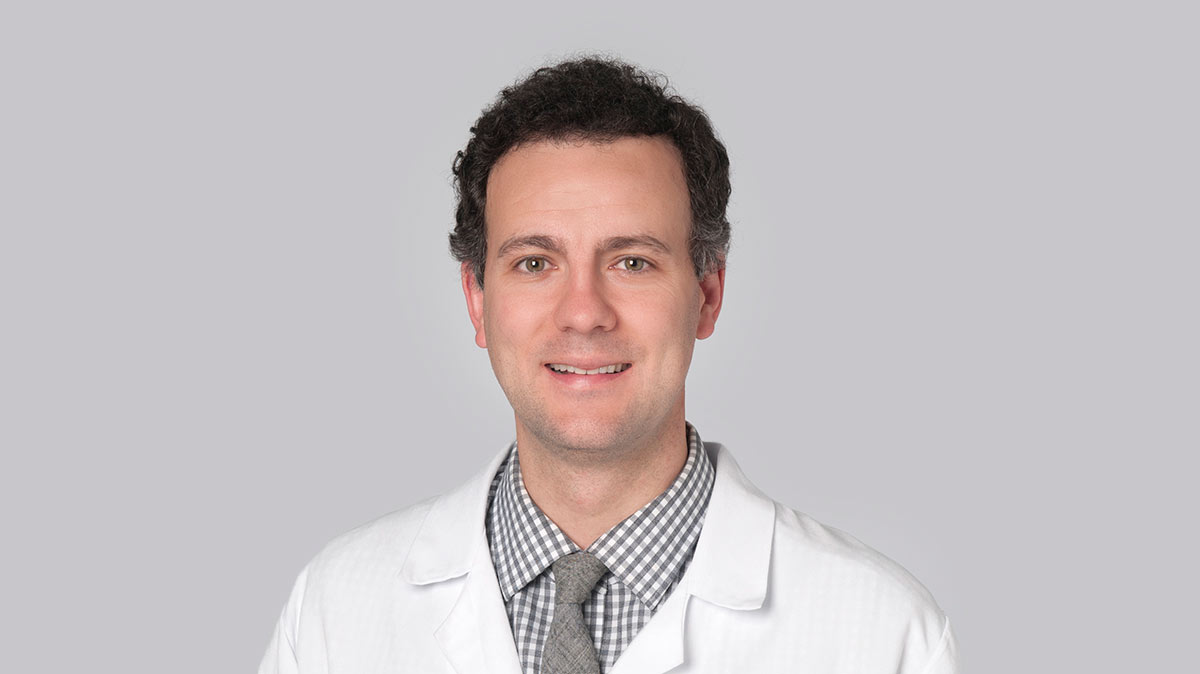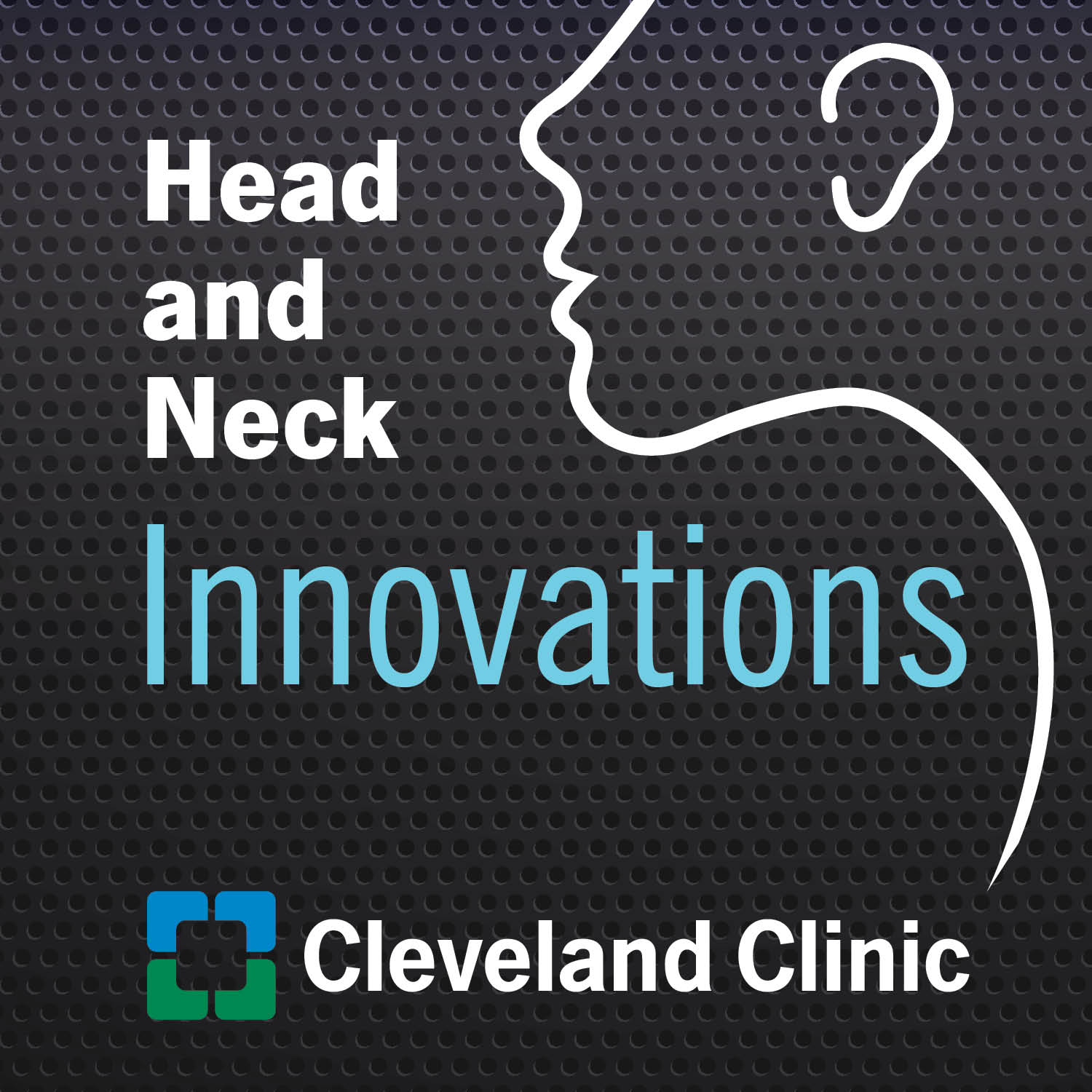Outcomes After Oral Cavity and Oropharyngeal Salvage Surgery

When a cancer either persists or returns after a patient's primary treatment, salvage surgery provides another opportunity to remove the disease. Head and neck surgeon Brandon Prendes, MD joins our podcast to comment on recent research into advancing the treatment of head and neck cancer.
Subscribe: Apple Podcasts | Spotify | Buzzsprout
Outcomes After Oral Cavity and Oropharyngeal Salvage Surgery
Podcast Transcript
Paul Bryson: Welcome to Head and Neck Innovations, a Cleveland Clinic podcast for medical professionals exploring the latest innovations, discoveries, and surgical advances in otolaryngology head and neck surgery.
Thanks for joining us for another episode of Head and Neck Innovations. I'm your host, Paul Bryson, Director of the Cleveland Clinic Voice Center and Director of Clinical Innovations. You can follow me on Twitter @PaulCBryson, and you can get the latest updates from Cleveland Clinic Otolaryngology Head and Neck Surgery by following @CleClinicHNI. That's @CleClinicHNI.
Today I have the pleasure of talking with Dr. Brandon Prendes. He's my colleague and a Head and Neck Oncologic Surgeon here at Cleveland Clinic. Dr. Prendes, welcome to Head and Neck Innovations.
Brandon Prendes: Thank you. Thanks so much for having me today, Paul.
Paul Bryson: Yeah. Can you share a little bit of background about yourself for our listeners? Where you're from, where you trained, and how you cultivated your interest in head and neck oncology?
Brandon Prendes: Sure. So I'm actually from the Cleveland area. I was born in the west side suburbs. I grew up there. Went to high school there. And then undergraduate, I did actually an engineering degree at University of Michigan in Ann Arbor. And then went on from there to medical school at University of Pennsylvania on across the country to fellowship at UCSF in San Francisco. And then finally ended up back here at Cleveland Clinic for a one year advanced head and neck fellowship in head and neck cancer surgery and reconstruction. And I guess I was interested in cancer care from my first rotations at medical school, and then got a chance to spend time with the Head and Neck Cancer Department at University of Pennsylvania and fell in love with ear, nose and throat treatment. But head and neck cancer surgery really and the reconstructive portion of it.
Paul Bryson: Yeah, I was just going to tell the listener it's not just the extra palliative surgery that you do, but you also are further specially trained in head and neck reconstruction.
Brandon Prendes: Yeah. And that is probably what I spend about 50 to 60 percent of my time doing. So, about half of my practice is removing cancers and the other half is reconstructing things after one of my partners removes the cancer.
Paul Bryson: I think people might be surprised how many different sub-sites and how many different primary locations one can unfortunately have head and neck cancer and it does require pretty complex reconstruction. I wanted to focus today on some recent studies that you've done, particularly looking at outcomes after oral cavity and oropharyngeal salvage surgery for cancers. This was published last year in The Laryngoscope. Can you tell our listeners just a little bit of overview of the study and some of the trial objectives as you approach this work?
Brandon Prendes: Yeah, of course. So this really came to fruition in 2018 was really when I got started on this project. Every year I'm lucky enough to get invited down to a multidisciplinary head and neck cancer update it's called that the Cleveland Clinic puts on in Fort Lauderdale. This coming year it'll be over St. Patrick's Day, so that'll be kind of a nice vacation away from Cleveland down to the warmer weather of Fort Lauderdale to really share the advances in treatment of head and neck cancer patients that the Cleveland Clinic doctors both here and at the Florida sites and other invited experts around the country give talks and updates on what's going on in head and neck cancer treatment.
So, I was putting a talk together 2018 for that on salvage surgery for head and neck cancer patients. And what salvage surgery is basically when people fail their primary treatment, whether that be initial surgery or initial radiation or a combination of surgery and radiation or radiation and chemotherapy and their cancers either persist, don't go away or they come back, they're oftentimes left with typically one option and that's surgery to try and what we call salvage or kind of rescue them from their disease. And so, I was looking at kind of the data in putting together this lecture, and I hadn't seen a lot of really updated large groups of patients that had been looked at in regard to these types of salvage surgeries. And so that was really the spot in the literature that I saw could be investigated and add to our ability to counsel patients if we could really do a good study on this.
Paul Bryson: Yeah, that's great. What did you find? And what did you see in the results? And what stood out to you?
Brandon Prendes: Sure. So the way we approached this was really the way we could, with the data available to us. It's difficult to do kind of a prospective study on this and try to randomize patients to surgery versus different treatments. So what we did is we did a retrospective study looking all the way back to 1996 and we found about 108 patients with oral cavity or oropharynx cancer who had had recurrence of the disease and underwent salvage surgery. And the findings were not too surprising. But some of the things that stood out to me is one, these patients really have a poor overall prognosis despite even the advancements that we've made in terms of reconstructing these patients to give them better functional outcomes. The oncologic outcomes are still pretty difficult when their cancers have persisted or come back after their initial treatment. So we weren't that surprised to find that, but it really kind of drives home the importance of prevention and the initial treatment of these tumors.
Paul Bryson: Anything that you took from it that has translated over to practice or like you had just said, it was maybe the findings weren't as surprising but sort of really hammered home the need to try to select that primary modality?
Brandon Prendes: Of course. So I think the things that we found in the study and in terms of just doing the study is it's kind of difficult to really hone in on the functional outcomes for these patients. Even things as simple as speech and swallowing function after these types of surgeries. So that's really a huge area where we can obtain prospective data and really improve our ability to gather data going forward. So I think that's going to be a huge difference maker in kind of what this study showed us is we need to gather that data going forward in prospective ways so we can really hone in on granularity in terms of what benefits are we giving these patients. If they don't have a ton of long-term survival, can we give them quality of life for the time that they have left, and how do we counsel them on what are the chances of really getting meaningful quality of life? So I think that's one of the things I really learned from this study.
The second is we really need a way to select what patients are going to do well and who aren't and who might benefit from some of the newer non-surgical therapies, whether it be immunotherapy or different radiation based approaches to re-radiation. So I think this is going to spawn more and more investigation into trying to get data, whether it be molecular markers or tumor biology in terms of selecting patients that should have surgery in a salvage setting and who should have other treatments.
Paul Bryson: Yeah, no, it's pretty exciting. As an observer, your group continues to grow. I think we're getting more and more resources and colleagues in place to look at those voice and swallow outcomes for those patients. Functional outcomes that you mentioned. And your team partnered at Taussig, it seems to be more and more opportunity to refine those treatment options and determine who would do well with what. And that it's not certainly not a one size fits all approach.
Brandon Prendes: Exactly. Yeah. I think the ability to hire more speech and language pathologists and the ability to harness the medical record system to really try to get real time data in terms of the outcomes of our head and neck cancer patients is going to be kind of where the forefront is in terms of learning and selecting and eventually possibly giving patients tools, whether it be electronically based to make decisions about treatment, to patient facing decision aids, where they can decide, input what's important to them in terms of quality of life and longevity. And the time to undergo treatment, whether it be a surgery where in our study they got out of the hospital within eight days and typically recovered well or whether it be a more prolonged chemotherapy or systemic treatment based regimen. What's the most important to them in terms of probability of long-term outcomes?
Paul Bryson: I think that's pretty exciting and I know it'll be very meaningful to your patients. As we finish up today, I just wanted to thank you for your time and your expertise and congratulate you on this research and just on your ongoing efforts to take care of head and neck cancer patients with head and neck cancer. Any final take home messages for our listener? As you know, there may be surgeons listening, there may be referring providers listening. Anything, any final comments to share?
Brandon Prendes: Yeah, I mean, this really is quite a rewarding topic to study to try to get better information to help our patients who for a long time have not had a lot of options when it comes to recurrent cancer. I think one thing I'd like to obviously drive home is the importance of prevention of these cancers long-term in terms of avoidance of tobacco use with respect to oral cavity and oropharynx cancer, and things like HPV vaccination, which will probably make the biggest difference in terms of our oropharynx cancer rates long term. So things like that that can prevent these cancers in the first place are going to be a huge win for us in terms of not needing to see patients struggle with the reality of having these cancers and having to undergo the treatment for them.
Paul Bryson: Well, I appreciate you and I appreciate your time today. For our listeners, for more information on Head and Neck Cancer Research and other trials and case studies in the field of otolaryngology head and neck surgery, please visit consultqd.clevelandclinic.org/headandneck. That's consultqd.clevelandclinic.org/headandneck. And to speak with a specialist or submit a referral, please call 216.444.8500. That's 216.444.8500. Talk with you next time.
Thanks for listening to Head and Neck Innovations. You can find additional podcast episodes on our website at clevelandclinic.org\podcasts. Or you can subscribe to the podcast on iTunes, Google Play, Spotify, SoundCloud, or wherever you listen to podcasts. Don't forget, you can access real-time updates from Cleveland Clinic experts in Otolaryngology Head and Neck Surgery on our Consult QD website at consultqd.clevelandclinic.org/headandneck. Thank you for listening, and join us again next time.



